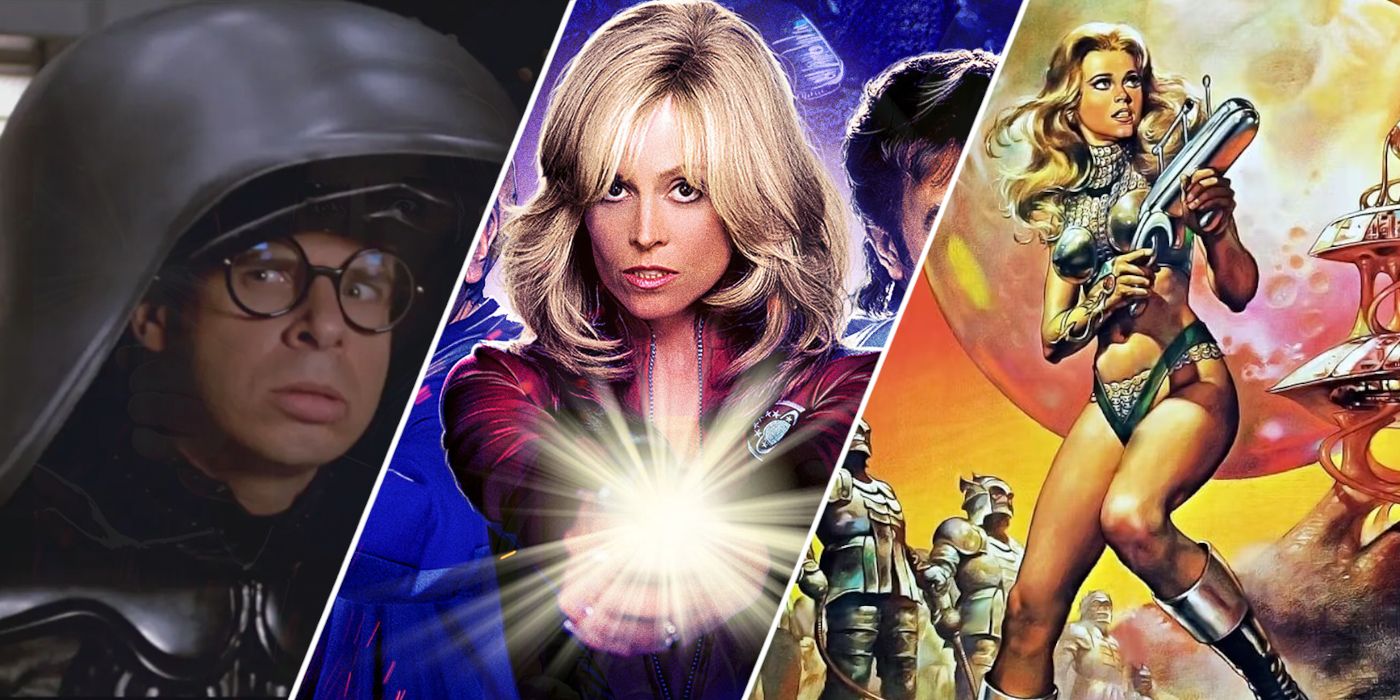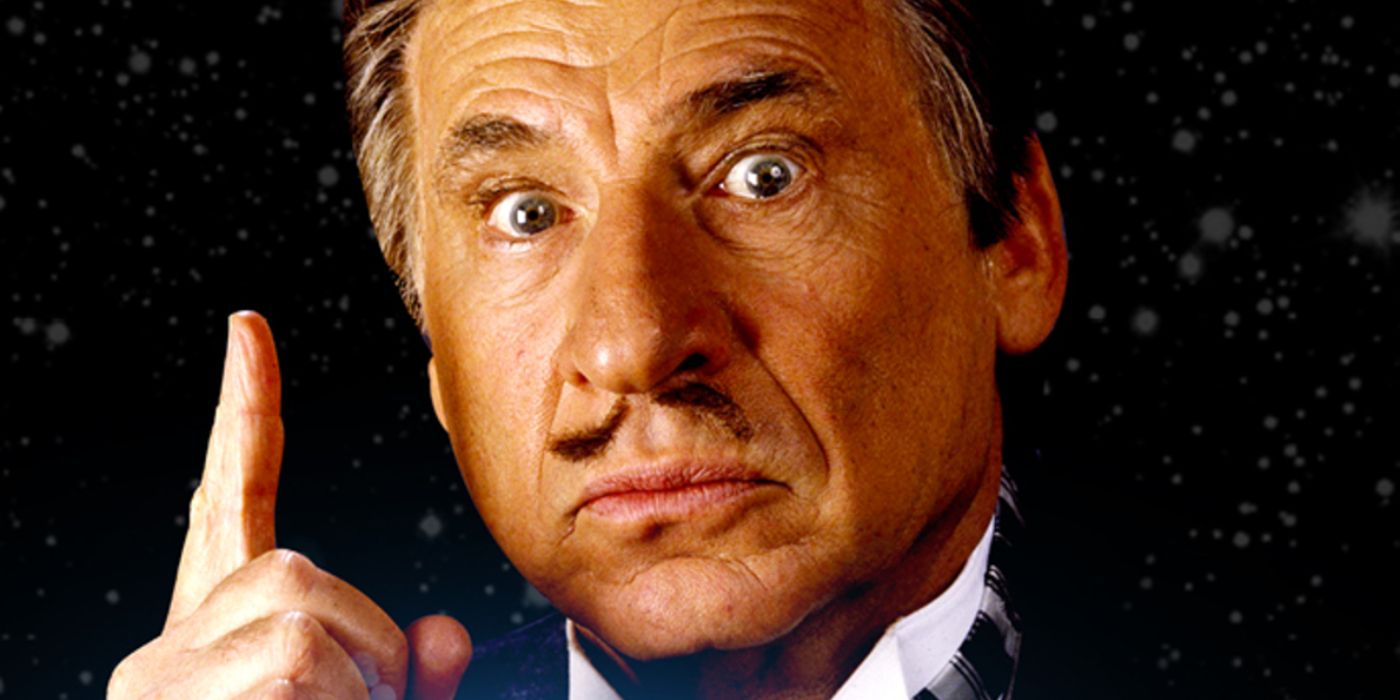The Big Picture
- Mel Brooks' humor is timeless, spanning from screen hits like Spaceballs to Broadway adaptations like The Producers.
- Brooks' iconic trope of breaking the fourth wall is not just for laughs, but stems from his formative teenage years.
- Struggling to perform in his first play at 14, Brooks' funny response ignited his comedy career that lasted over seven decades.
Few comedic legends have stood the test of time with the same amount of success as Mel Brooks. The multi-faceted legend has a slew of hits under his belt such as Spaceballs, Blazing Saddles and History of the World, Part I, which he recently released a sequel to on Hulu with 2023's History of the World: Part 2. Brooks wrote the Hulu Original series alongside Wanda Sykes, Nick Kroll and Ike Barinholtz.
The creator is known for a broad career that has not only spanned the screen, but the stages of Broadway as well, as Brooks adapted stage productions of both The Producers and Young Frankenstein. Regardless of the medium in which he presents his work, Brooks brings his iconic tropes and unmistakable sense of humor to each of his projects. One of the most recognizable "Brooks gag" is his knack for breaking the fourth wall. Present in his work both on screen and on stage, the trope is more than just another source of laughs for the comic legend, but also a sentimental memory. In fact, it's one that goes back to his early teenage years, and one that proved crucial to the icon's future.
Breaking the Fourth Wall Goes Back to Mel Brooks' Teenage Years
Mel Brooks' fabled comedy career began more than 70 years ago, in 1950, when he joined Sid Caesar's Your Show of Shows as a writer. But it was in the 1960s and later the '70s that he rose to prominence. Following the release of his comedy albums, in which Brooks played The 2000 Year Old Man, a character co-created with the equally legendary Carl Reiner, Brooks would find success in movies thanks to cinematic hits like The Producers, Blazing Saddles, and, perhaps his most beloved film, Young Frankenstein. Brooks' comedy style is unique, being a mixture of classic slapstick, absurdism, and a constant flood of gags. Of course, one of his greatest reoccurring jokes is that of breaking the fourth wall. But this isn't simply another means of creating laughter. It has great sentimental value for Brooks as the trope is largely responsible for his career. Brooks was 14 when he went away to work at the Butler Lodge in the Catskill Mountains. While there, Brooks would participate in various activities and perform numerous tasks, but most of all, the young Brooks wanted to be an actor.

From 'Galaxy Quest' to 'Spaceballs': The 12 Best Sci-Fi Parody Movies of All Time
“I am your father’s brother’s nephew’s cousin’s former roommate.”As the lodge occasionally presented staged performances, the resort put on a production of Uncle Harry during Brooks' employment. This was a crucial moment for Brooks as he got what would be an early break. One of the actors had fallen ill, and couldn't go on, thus their role was given to Brooks. This was despite the fact that he was nearly four decades younger than the actor whom he replaced. Per The Huffington Post, Brooks recalls: "...I play the district attorney, and I pour a glass of water. And I'm supposed to say, 'There there, Harry--just relax and tell us what happened.' So I pour the glass of water, my hands are sweating, the glass is wet, I drop the glass, it breaks, the water goes all over the place on the stage. I didn't know what to do--it was just hushed silence. So I walked down to the footlights, I take off my wig, my beard, I say, 'I'm fourteen and a half, it's my first play, whadaya want!' And I got my first big laugh, and I never stopped being funny after that..."
Just like that, Brooks had discovered his niche. Unfortunately, fate would intervene, and it would be some time before he could pursue his desire professionally. The U.S. Department of Defense states that Brooks was drafted into the army three years later, in 1944, and served for 2 years when he was honorably discharged in 1946. With his fortune back on track, Brooks finally broke into Hollywood as a writer for Sid Caesar in 1949. This would open the doors to his movie success in the decades after. Owing it all to that fateful performance in the Catskills, breaking the fourth wall with the audience has remained an important part of his storytelling.
Breaking the Fourth Wall Plays an Important Part in Mel Brooks' Stories
While working on his acclaimed sequel, History of the World: Part 2, Brooks spoke about his philosophy regarding the shattering of the fourth wall with the New Yorker:
That may be in your bones, to know, O.K., it's time to shatter the illusion of make-believe and bring it into the real world — because it's going to get a big laugh, and a big laugh is worth a lot.
It's a tradition Brooks has stuck with in each of his projects. Beginning with 1967's The Producers, the trope played a major role in the climax of Blazing Saddles. The beloved platitude is also a part of Brooks' stage ventures, appearing in both The Producers and Young Frankenstein. His musical take on The Producers was readapted into another film, where Brooks' fondness of the rule is featured heavily.
There are few comics who have reached heights equivalent to those of Mel Brooks. The beloved filmmaker made a name for himself thanks to his unique brand of humor; a collection of gags that always feature the breaking of the fourth wall. More than just a joke, however, the high camp element is deeply rooted in his teenage years, and, thanks to a last-minute understudy performance given by Brooks, it paved the way for the illustrious career for which he is so beloved.

